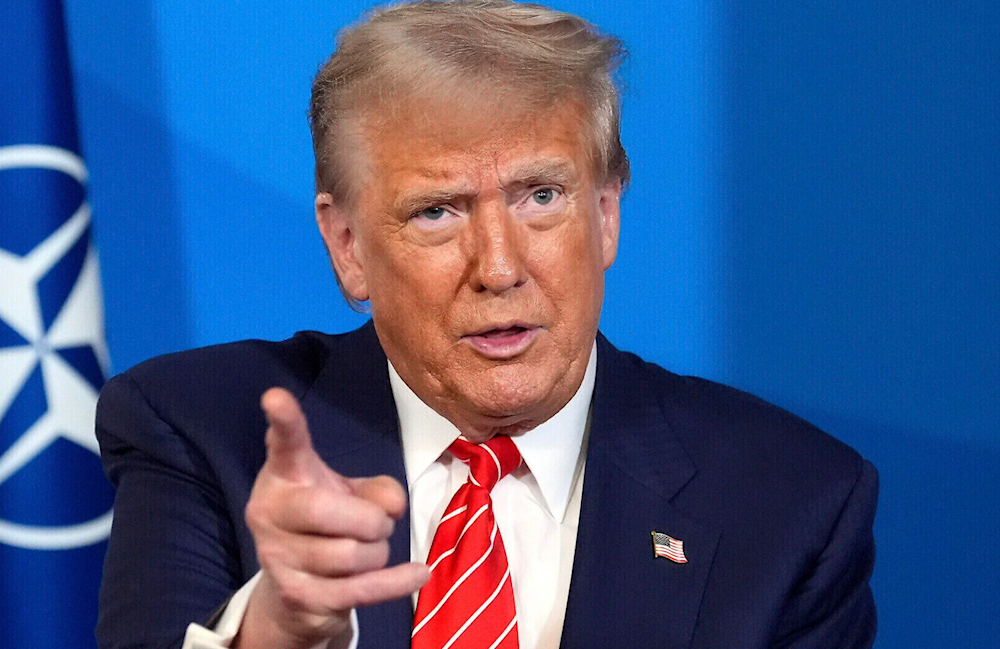Trump plans tighter intel curbs after Iran strike impact leak: Axios
A senior White House official says there is now a "war on leakers."
-

US President Donald Trump speaks during a meeting with NATO Secretary-General Mark Rutte at the NATO summit in The Hague, Netherlands, on June 25, 2025. (AP)
The Trump administration plans to restrict how classified information is shared with Congress after a leaked report suggested that recent US bombings of Iranian nuclear facilities were less effective than President Trump had claimed, four sources told Axios.
The leaked Defense Intelligence Agency (DIA) “Battle Damage Assessment,” shared via CAPNET, a classified system used to brief lawmakers, indicated Iran’s nuclear program was only set back by months, not "obliterated" as Trump stated.
The leaked report indicated that Iran's stockpile of enriched uranium was not destroyed and that the centrifuges remain largely "intact", concluding that the US strikes set back Iran's nuclear program by only a few months, at most, according to two of the people familiar with the assessment.
'War on leakers'
A senior White House official reported Wednesday that there was now a "war on leakers."
The leak sparked outrage in the White House and prompted an FBI investigation. Officials claimed that the early DIA report was incomplete, based only on satellite imagery, and acknowledged its own “low confidence”. Trump allies argue the leak was politically motivated and undermined the administration’s message.
“We are declaring a war on leakers,” said a senior White House official, who confirmed efforts are underway to tighten access to intelligence and prevent what they called “Deep State” interference. Officials pointed to the immediate leak after the document’s release on CAPNET as justification for scaling back congressional access.
The decision comes amid existing tensions with Democrats, who were already frustrated by a lack of pre-strike briefings. Further restrictions are likely to inflame those concerns. Still, administration officials remain defiant. “There’s no reason to do this again,” one said.
Trump, Hegseth admit inconclusivity over Iran nuclear damage
Trump, speaking at a NATO summit, along with Defense Secretary Pete Hegseth and Secretary of State Marco Rubio, downplayed the leaked assessment, insisting the strikes had caused “very significant” damage, echoing early claims by Israeli intelligence.
“The intelligence says we don’t know. It could’ve been very severe. That’s what the intelligence suggests," he said, though he quickly reverted to his earlier rhetoric, repeating, “There was obliteration.”
Trump even compared the strikes on Iran’s Fordow and Natanz sites, where massive bunker-buster bombs were used, to the US nuclear bombings of Hiroshima and Nagasaki.
Hegseth, who previously declared Iran’s nuclear ambitions had been “obliterated", also softened his tone, now describing the damage as “moderate to severe.” He pledged an FBI investigation into the Pentagon leak while dismissing parts of the leaked material as “false".
"All this stuff about the intelligence: This is what a leaker is telling you the intelligence says," Rubio said. "That's the game these people play. They read it and then they go out and characterize it the way they want to characterize it."

 3 Min Read
3 Min Read










